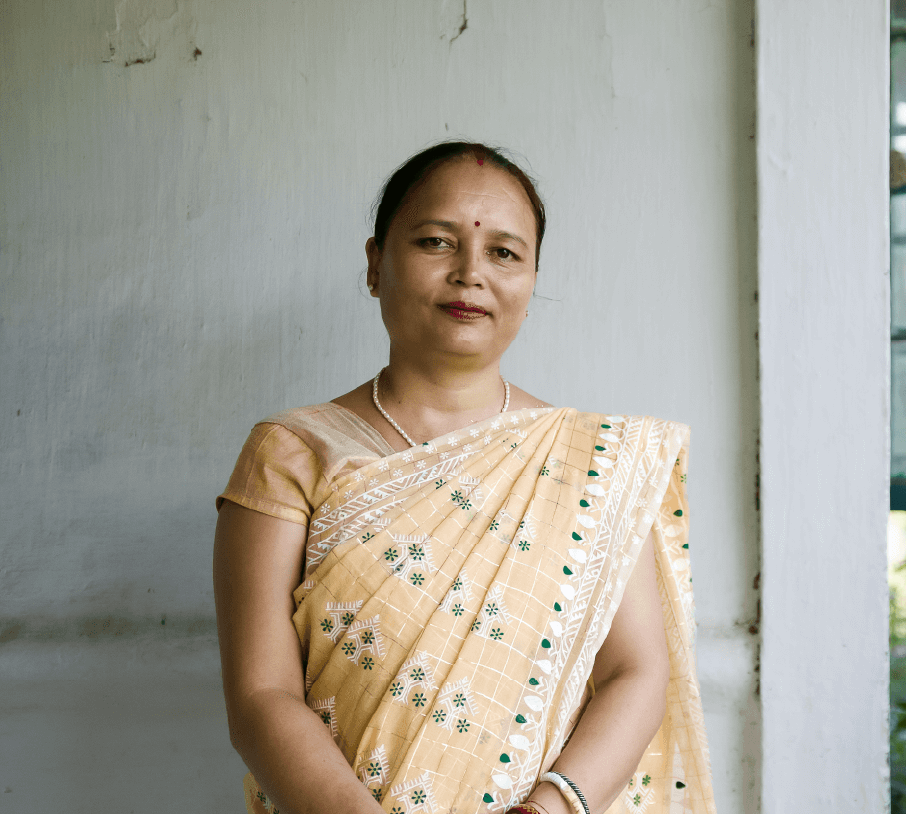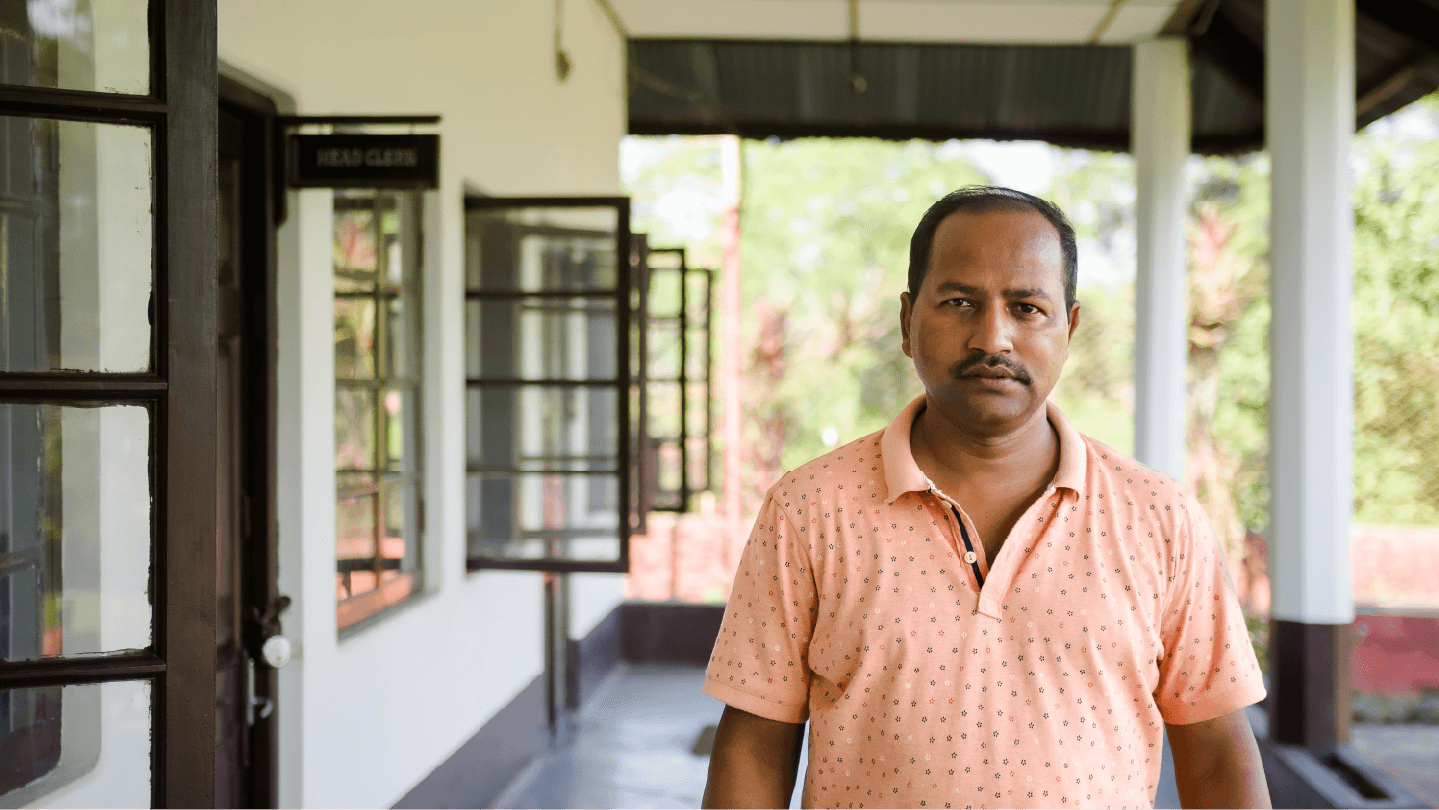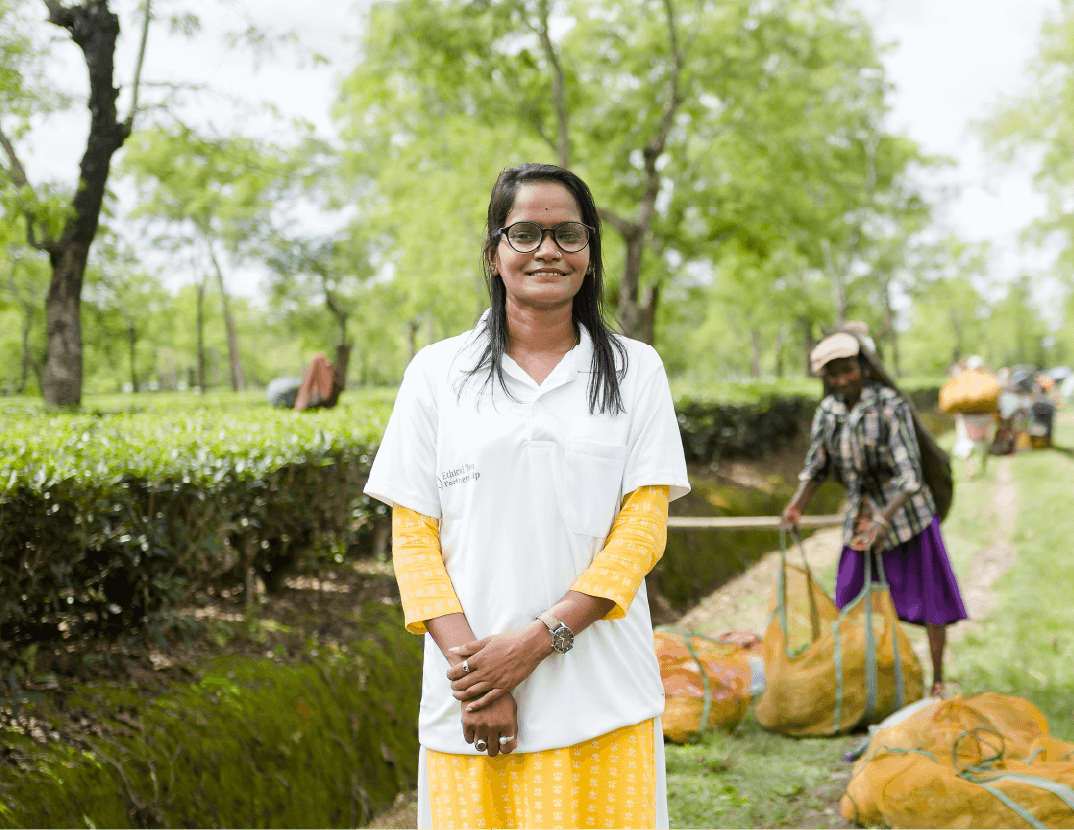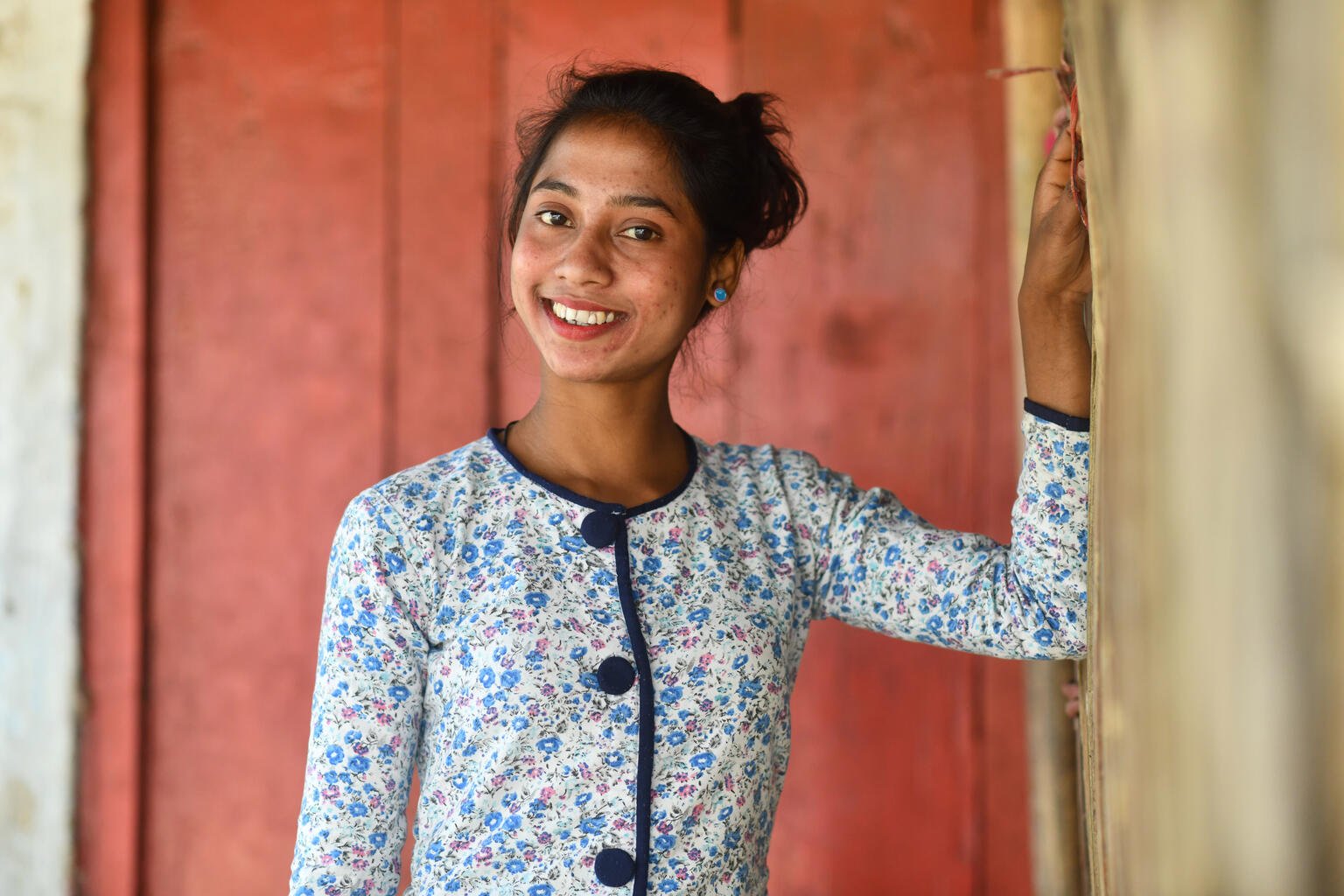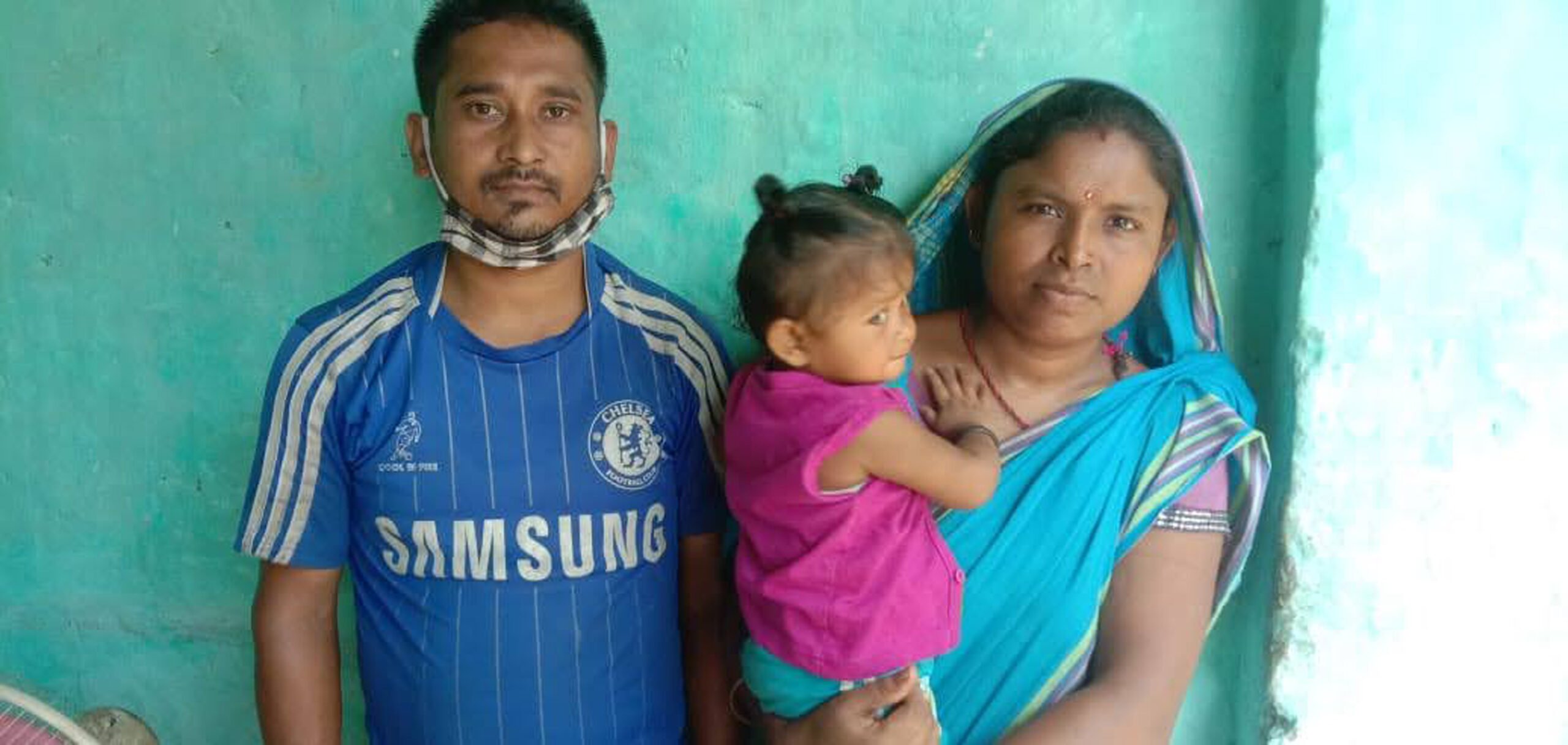Fact finding
PCEP launched in Borbam during its pilot phase, in 2017, with a ground survey of the problems and issues faced by the community, followed by the creation of an Estate Development Plan outlining remedial measures. Two key themes emerged during the survey; women’s safety, and digital skills for young people.
About 65% of the population in Borbam are women. PCEP’s introduction led to the creation of a dedicated women’s safety committee, with members voted for by community workers. They have organised several programmes in partnership with NGOs to raise awareness of women’s rights and empower them, and they also tackle local complaints related to gender based violence and sexual abuse.
According to Jinita, their presence has helped instil a sense of security and confidence among the women at Borbam. “I think after the CDF started, the women in our garden are coming forward and feeling safer,” she tells us. “Women who used to feel uncomfortable speaking in front of people can do so now. When we arrange meetings and invite them, they come readily and speak up. They feel safe and if they have a problem, they are able to tell us.”
Rajesh Patra, Senior Labour Welfare Officer at Borbam Tea Estate, Vice President of the PCEP programme, and representative for estate management in the CDF, agrees. “Women come [to the] front, sit face-to-face with management and speak about their issues,” he says. “By coming out [and] sitting at the table, it shows they feel safe.”
